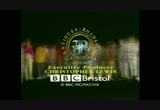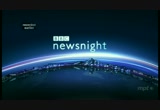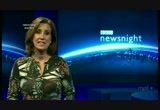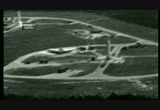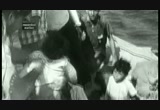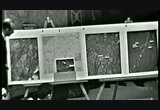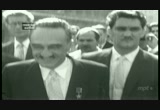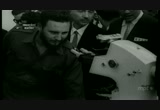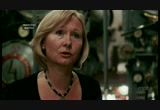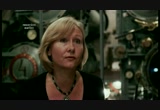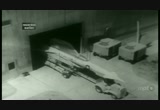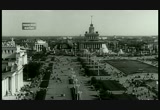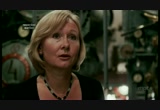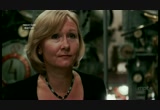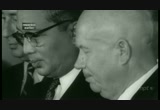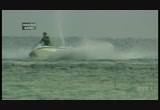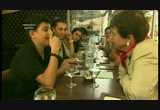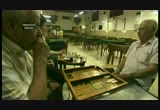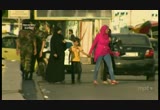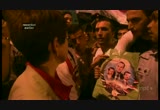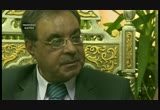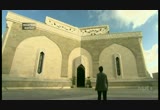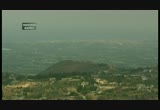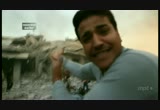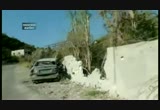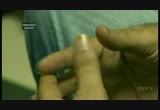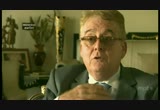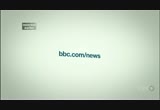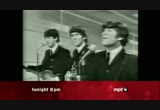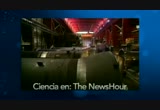tv BBC Newsnight PBS October 13, 2012 5:00am-5:30am EDT
5:00 am
>> this is "bbc newsnight." funding for this presentation is made possible by the freeman foundation of new york, stowe, vermont, and honolulu. newman's own foundation. and union bank. >> at union bank, our relationship managers work hard to understand the industry you operate in. working to nurture new ventures and help provide capital for key strategic decisions.
5:01 am
we offer expertise and tailored solutions in a wide range of industries. what can we do for you? >> i call upon chairman khrushchev. he has an opportunity now to move the world back from the abyss of destruction. >> this week, half a century ago, it brought the world to the brink of nuclear war. the queue will listen -- the cuban missile crisis ended. now we reveal how the peacemaking deal all counted for nothing. beyond the conflict, we go inside syria.
5:02 am
the cuban missile crisis of october 1962 is generally accepted as the 20th century's moment of maximum peril. on the 50th anniversary, we have exclusive access to new information that painting even more dangerous image of how the crisis unfolded. paper said to be revealed next week showed that far from the deal being struck neatly, there was a us secret secret -- there is a secret second stage to the standoff with massive implications for the world. >> the cuban missile crisis did not end on october 28, 1962. cuba was going to become a nuclear power right under the nose of the american state, 90 miles from florida. >> there was a lot of potential for at least another three weeks.
5:03 am
we were still at the highest state of alert short of nuclear war. >> i call on chairman khrushchev. he has an opportunity to move the world back from the abyss of destruction. >> people around the world breathed a huge sigh of relief when the soviet president nikita khrushchev agreed to withdraw missiles from cuba. in return, president kennedy pledged the united states would not invade cuba and would withdraw its medium-range nuclear missiles from turkey. it appeared the moment of danger had passed. but new documents shortly to be published from the archives of christoph's deputy during the crisis tell a different story. this woman describes the contents. >> what these declassified documents show is the cuban
5:04 am
missile crisis it entered a new stage of crisis. we know now the soviet union delivered not only strategic missiles to cuba, medium-range missiles to cuba, but also over 100 tactical nuclear weapons. and these weapons were not covered by the agreements between kennedy and khrushchev. >> the agreement between washington and moscow came after the most critical day of the crisis, known as black saturday. >> black saturday, october 27, was the peak of the crisis. both kennedy and khrushchev felled the situation -- felt the situation was slipping out of control and they had to do something to end the crisis. one that -- one u2 was shot down. in the caribbean, the u.s. was trying to bring out soviet
5:05 am
submarines. what they did not know was the submarines were armed with nuclear weapons. on cuba itself, the soviets were moving warheads to the missile site and targeting the u.s. naval base on guantanamo bay. >> under the agreement of october 28, the soviets agreed to remove their medium and intermediate-range missiles from the base in cuba. americans insisted on strict monitoring verification from the air to ensure they kept on schedule. in a total failure of intelligence, u.s. commanders were blind to the existence of over 100 soviet technical weapons. meanwhile on the ground in cuba, fidel castro began to see some
5:06 am
cooperation with moscow. >> castro is very angry at the soviet patrol. cubans feel betrayed. for them, it was like the soviet government made one concession after another to the americans and never consulted their own cuban allies. >> -christoph -- nikita khrushchev immediately dispatched his most trusted, the deputy premier, to havana. >> he was sent to to vote with the goal of healing the wounds and to influence castro. castro refuses to meet with the premier for several days. he begins to understand the breadth of the humiliation the cubans are experiencing. >> for the premier to rise to the center of government, the
5:07 am
request drew on personal trauma. >> on the day of his arrival, his wife died. castro said to him -- "go back to your wife's funeral." with great sadness -- he had been married many years -- since his son back to the soviet union to the funeral. he stays and meets with the cuban leadership. >> 1 finally granted his audience with castro, he found cuba to be a bundle of conspiracy theories. with clear instructions from khrushchev, he conveyed the soviet offer intended to placate castro. you can keep the tactical nuclear weapons. just don't tell the americans. >> it was the same promise, which is we promised kennedy we were removing them. but cuban descent was very
5:08 am
strong. everything else we have in cuba will stay in cuba and you cubans will be trained by our specialists and the cubans will have their authority to use these weapons. >> but privately, the premier was having doubts about letting castro anywhere near the nuclear weapons. >> he understands that his cuban pride and the way the cubans saw of possible nuclear weapon very differently from how the soviets saw it, that it would be very dangerous and irresponsible maybe on his part to leave these weapons in his hands. >> for them, nuclear war was perhaps an inevitable consequence of fighting the good fight. >> by mid november, castro had
5:09 am
become increasingly belligerent to washington and moscow. is particularly -- he particularly objected to the low-flying soviet monitoring flights. he made the decision that the cuban army would be ordered to shoot at the american planes. >> he makes this decision and does not consult the soviet allies, just like they did not consult him. the new shop for the leadership -- it is clearly a step towards the escalation of the crisis. what would happen if an american plane was shot down over cuba, this time by the cuban forces? the soviets were trying to do everything possible to prevent that escalation. >> the letters between kennedy, christoph, and castro throughout the crisis revealed that kennedy and christoph came to the clear realization the immediate problem was not with each other, but rather with
5:10 am
fidel castro. meanwhile, isolated in havana, the soviet premier faced a decision that would affect the world. >> after the middle of november, after castro's decision to shoot at low-flying american planes, gradually, he comes to his own decision, his personal decision that he made by himself without consulting with the center, that tactical nuclear weapons would have to be removed. >> as castro's antagonism toward washington and moscow continued, the soviet premier realized his time was running out. at the united nations in new york, the cuban ambassador was about to tell the world about the secret nuclear weapon. >> the cubans were given instructions to the representatives at the predicted the representative at the united
5:11 am
nations. in those instructions, the mention specifically that cuba has tactical nuclear weapons. the soviet premier understands this table could be intercepted -- this table could be intercepted by american intelligence. the secret could come up. he immediately came forward to moscow and said that they have the representative from following his instructions. that he should not say a word of the united nations or anywhere else. >> he now faces his biggest challenge -- how to get castro to agree to the removal of the tactical nuclear weapons he thought were his? >> in the exchange of cables,
5:12 am
between the premier and khrushchev, the soviets never gave him clear instructions about the you remaining tactical -- about the remaining tactical nuclear weapons. he is awaiting instructions, but he has to go meet with castro late night on november 22, 1962. and he knows this conversation will be about the removal of weapons and about the fate of the military agreement between the soviet union and cuba. >> this is the first time the details of the meetings which began on november's 22nd -- november 22 have been revealed. >> castro asked the premier about the nuclear weapons. can we keep them? the premier said no, you cannot
5:13 am
keep them. very interestingly, castro says we have a secret law that prohibits us from transferring tactical nuclear weapons to your country. there is no such law, but he tells castro that we have this lot. castro suggests the law should be repealed. can you repeal this law? basically he begged the premier to leave these -- what he thought i was -- what he thought of as the last defense against the united states -- in cuba. but the premier says no, we cannot. all nuclear weapons are leaving cuba. that conversation and his mission is accomplished. what it shows in my view is that two but was -- cuba was a
5:14 am
pawn in the game, but now we see that you could have made the crisis much more dangerous. >> the tactical nuclear weapons have been used -- if the tactical nuclear weapons had been used, 100,000 american soldiers would have been killed. >> in 1962 both nikita christoph and john kennedy acknowledged out close they had gone to nuclear war. christoph -- khrushchev agreed to work towards nuclear stability through kennedy's second term. it was never to be. >> one of the publications in the syrian conflict over the past 18 months as in the simple fact, however inconvenient it may be to the opposition, that
5:15 am
president assad does enjoy support from some courtney in -- ordinary syrians. many centers are on touched by violence. our correspondent has been to one such city. >> another day dawns on the mediterranean. the only fighting on this part of the syrian coast is between friends on that jet skis. welcome. it is long a place of holiday for syrians. now they are coming here in search of refuge. on the streets here, there is an eased you do not find many places anymore. i arranged to meet a group of students at a popular cafe. the come from syria felt many ethnic and religious groups --
5:16 am
they come from syria from many ethnic and religious groups. but there is no attention around this table. these friends call themselves one big family. it is hard to believe war is raging about an hour's drive away. >> it is a fantastic place. i like my town. >> what do you think about them saying it is too dangerous to come to syria? >> no, no. you can stay in this place. no, nothing. >> nothing happens. there is no problem here. may be like -- they say there is a problem in damascus, for example. not all of damascus. one area. not the whole city. >> it is not just the optimism of use. a few steps away, i come up
5:17 am
across two men playing backgammon. may we say? they play everyday. same place, same time. they have lived through too many wars in this region. do you think the war will come through here? >> no, no. not at all. because the people here are very reasonable. of the country now, i think they will overcome it. i hope so. >> but this place is not shut off from the rest of the country. when serious uprising began some 18 months ago, -- and syria's
5:18 am
uprising began some 18 months ago, there were also uprisings in the square here. they were forcefully put down. the occasional explosion or demonstration since then -- this remains a one of the most peaceful areas in syria. the authorities are determined to keep it that way. this region is to important to lose. the long shadow of the assad family falls across this region. is not just their political home. is there ancestral home. like most of syria, the population is mixed, but they are a large minority. this is the kind of demonstration they allow your. a pro-assad rally in the city center. it is organized by a local youth
5:19 am
group. they call themselves "the stand firm volunteers." why do you support president bashar al-assad? >> he is a very, very good president and the world. >> but some people say you should step down. you should leave power. >> that is absurdist. he will protect us. all people like bashar al-assad. >> but so many people of died in syria -- >> because of -- >> that is what you often hear. they defend the president'. they brandish photographs of him and his powerful brother who commands the elite republican guard. a the governor's office, too,
5:20 am
photograph of assad and his late father on every wall. the intelligence service keeps a close eye on everything here. the governor is the president's man here. i asked him about the tight security. >> security is not sites here. the situation here is normal and safe. just like any country, the security services will intervene to protect the regime and the rule of law here. >> now the fighting has reached damascus and aleppo. do you worry fighting could come here? >> we're in the process of putting down these destructive gangs in damascus and aleppo. i am not worried for your nor
5:21 am
damascus nor aleppo. >> in the mountains, this is where people are defending the regime with their lives. these poor villagers are providing soldiers in the war. there is a funeral almost every day here. but there is still powerful support for assad's rule. he is one of them. the a saud family is buried in these -- the assad family is buried in these hills. where -- we were given a tour. from poor roots, assad's father died in 2005. even in death, he looms large. his son bashar succeeded him.
5:22 am
now it seems he is under pressure to preserve his father's legacy, a leader who will rule with an iron fist. the town was a quiet the day we visited. since then, there a been reports of clashes between families, including the assad family. there are few overtrade, money, power, the president's rule. whatever it is, it is a measure of the growing unease this community is paying for this war. this region is regarded as the president's last redoubt. there is even speculation he could form a breakaway state, stretching from these mountains down to the c. to another city that matters in this region -- the country's biggest port. this is a port with a huge strategic value, but a lot of symbolism.
5:23 am
it is not just used by syria, but syria's most important ally brushup. this is moscow's last report in the mediterranean. -- last port in the mediterranean. the battle is raging just beyond this area in aleppo in the north. government forces are shelling neighborhoods. civilians are paying a heavy price. many have said -- many have fled here. the city's main stadium is giving refuge to nearly 500 families. the referees are now home to this family. >> bbc london? >> they have been here for the past month. she tells me "thank god we are
5:24 am
here. is safe. the army was trying to move other people out of our area. there were clashes and gunfire. we have children. aleppo is like a disaster son. there are bodies in the streets. we can let our children see that." but there is destruction in this region, too. this amateur video shows mountains in ruin. communities have seen heavy clashes. some villages are now controlled by rebels. serial's war is often described as a sectarian conflict, -- syria's war is often described as a sectarian conflict. the regime is criticized for stoking fear elsewhere in the country. this man wants is identity --
5:25 am
his identity didn't. does he see this as a sectarian conflict? >> of course not. they are not going to succeed. >> this is a stronghold, a strong bastion of support for president assad. how would you describe it? >> this is the impression the regime wants to convey, because i see it as the opposite. there has not been a single sectarian incident here. >> we are muslims and we care -- >> that is what they want to preserve your. and leading academic says diversity is to be celebrated, not the feared. >> this is jesus christ. jesus christ in the house of a muslim. >> he bristles when i asked
5:26 am
about his roots. >> i can assure you, very, very much. most of my friends, you know, are mixed. and my grandson of 130 years of intermarriage. that means we have -- we don't have that issue. >> many in this city still hold onto a syria of old, a secular mosaic that helped define a national identity. other parts of syria but they were special, zertoo. they stand apart, but their fate rests on the war behind --
5:27 am
beyond. >> that is it for us this week. goodbye. >> make sense of international news at bbc.com/news. >> funding for this presentation is made possible by the freeman foundation of new york, stowe, vermont, and honolulu. newman's own foundation. and union bank. >> at union bank, our relationship managers work hard to understand the industry you operate in, working to nurture -- to know your business, offering specialized solutions and capital to help you meet
5:28 am
198 Views
IN COLLECTIONS
WMPT (PBS) Television Archive
Television Archive  Television Archive News Search Service
Television Archive News Search Service 
Uploaded by TV Archive on

 Live Music Archive
Live Music Archive Librivox Free Audio
Librivox Free Audio Metropolitan Museum
Metropolitan Museum Cleveland Museum of Art
Cleveland Museum of Art Internet Arcade
Internet Arcade Console Living Room
Console Living Room Books to Borrow
Books to Borrow Open Library
Open Library TV News
TV News Understanding 9/11
Understanding 9/11